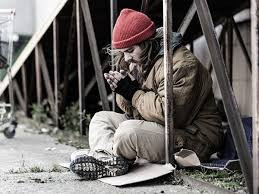views
The Link Between Addiction and Poverty
Addiction and poverty are often intertwined, with each exacerbating the effects of the other. For many individuals, the experience of addiction can be a significant contributor to financial instability, while poverty can act as a catalyst for substance abuse. This complex relationship creates a vicious cycle that can be difficult to break. Understanding the connection between addiction and poverty is crucial in helping individuals break free from both circumstances. In this blog, we will explore how addiction and poverty are linked and how support from resources like a psychiatric hospital in Pune can play a key role in recovery.
Addiction as a Result of Poverty
Poverty is a major factor that can contribute to the development of addiction. Individuals living in poverty often face overwhelming stressors, such as financial instability, lack of access to education, and unsafe living conditions. These stressors can lead to feelings of hopelessness, anxiety, and depression, which may encourage individuals to turn to substances as a way of coping.
Substance abuse can provide temporary relief from these harsh realities, allowing people to numb the emotional pain and escape from their difficult circumstances. However, while substances may offer short-term relief, they often worsen the problems associated with poverty, leading to a long-term cycle of addiction.
For example, someone struggling with financial hardships may use drugs or alcohol to manage their stress and negative emotions. This behavior can escalate into full-blown addiction, further impairing their ability to maintain employment, pay bills, or support themselves and their family. As their addiction deepens, their financial situation worsens, and they become trapped in a cycle of poverty and substance abuse.
Poverty as a Barrier to Addiction Treatment
While addiction and poverty are closely connected, it’s also important to consider how poverty can make it more difficult for individuals to access the help they need to overcome addiction. One of the most significant barriers to addiction recovery for those in poverty is the lack of resources and access to treatment.
Many addiction treatment programs, including inpatient rehabilitation, therapy, and counseling, come with a financial cost that is simply out of reach for individuals living in poverty. Even for those who can access treatment, the lack of stable housing, transportation, and basic necessities can make it difficult to maintain sobriety and stay committed to recovery.
Furthermore, the stigma surrounding addiction and poverty can also prevent individuals from seeking help. They may fear being judged or feel ashamed of their situation, which can prevent them from accessing the support they need. It is critical that addiction treatment programs become more accessible and inclusive, offering affordable and comprehensive care for those facing both poverty and addiction.
Breaking the Cycle: How Treatment Can Help
Breaking the cycle of addiction and poverty requires a multi-faceted approach that addresses both the addiction and the socio-economic factors contributing to it. Support from healthcare professionals, addiction counselors, and psychiatric hospitals can make a significant difference in helping individuals overcome both their addiction and financial struggles.
A psychiatric hospital in Pune can offer a range of services tailored to individuals facing the dual challenges of addiction and poverty. These facilities not only provide addiction treatment but also offer mental health services to help individuals manage the emotional and psychological aspects of recovery. By addressing the root causes of addiction, such as trauma, mental health disorders, and stress, these hospitals can offer a holistic approach to healing.
Additionally, many psychiatric hospitals have partnerships with community organizations that can provide financial support, job training, housing assistance, and social services. These programs can help individuals transition from addiction to stability by providing them with the tools they need to rebuild their lives. Access to these resources is critical in helping individuals overcome the barriers posed by poverty.
The Importance of Social Support Networks
Social support is crucial in helping individuals break free from the cycle of addiction and poverty. Support networks, including family, friends, and community organizations, can provide the emotional and practical support that individuals need during their recovery process.
Family members who understand the struggles of addiction can offer encouragement and empathy, while friends and peers in recovery can provide motivation and accountability. Support groups, such as Narcotics Anonymous (NA) or Alcoholics Anonymous (AA), offer a safe environment for individuals to share their experiences and learn from others who have gone through similar challenges.
Community organizations and non-profits can also play an important role in addressing the effects of poverty on addiction recovery. These organizations often provide access to essential services such as food assistance, housing support, job placement programs, and financial counseling. The combination of addiction treatment and social support helps individuals regain their independence and rebuild their lives.
The Need for Comprehensive Policy Solutions
Addressing the link between addiction and poverty requires not only individual efforts but also systemic changes. Governments and policymakers must take a comprehensive approach to tackle both addiction and poverty simultaneously.
This could involve expanding access to addiction treatment programs, increasing funding for mental health services, and providing economic opportunities for individuals in poverty. Ensuring that individuals have access to affordable housing, job training, and healthcare is essential in helping them break free from the cycle of addiction and poverty.
Additionally, there needs to be a focus on reducing the stigma associated with both addiction and poverty. Public education campaigns that promote understanding and empathy for those struggling with addiction can encourage more individuals to seek help without fear of judgment. This approach can foster a more supportive environment for people in recovery, allowing them to overcome both addiction and the barriers posed by poverty.
Conclusion
The link between addiction and poverty is complex and multifaceted. Addiction can result from the stress and emotional pain caused by poverty, while poverty can make it harder for individuals to access the treatment they need to overcome addiction. However, with the right support and resources, it is possible to break the cycle and reclaim a life free from both addiction and financial hardship.
Seeking professional help from a psychiatric hospital in Pune can provide the comprehensive care needed to address both the mental health and addiction aspects of recovery. By taking a holistic approach to treatment and addressing the root causes of addiction, individuals can regain control of their lives and work towards a brighter future free from the constraints of both addiction and poverty.












